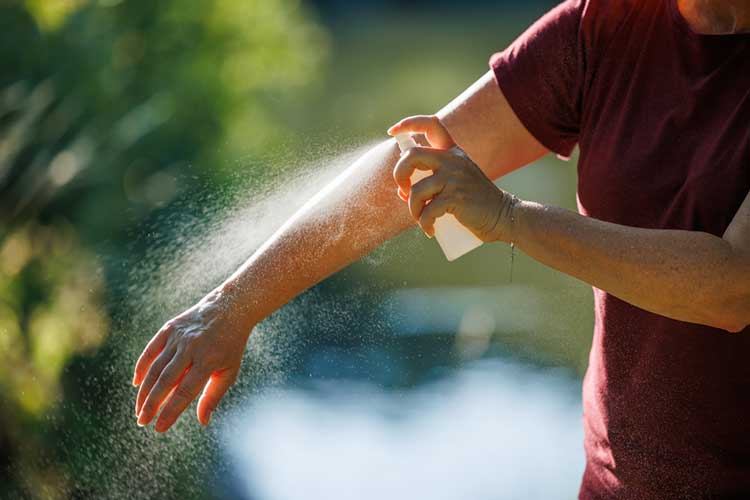How to Get Rid of Mosquitoes
Last updated November 2024

In some yards, mosquitoes become so bothersome that residents won’t go outside in the summer. And in many parts of the U.S., mosquitoes pose a great health threat by spreading West Nile virus.
How to Stop Them
Zillions of products promise to keep mosquitoes away, from wristbands to speakers that emit ultrasonic noise to electronic repellers to aromatic plants. Many of these claims are bogus; some have a little bit of merit. The University of California Statewide Integrated Pest Management Program says this:
“Researchers have shown that all these methods are of little or no value in repelling mosquitoes… Electric bug zappers that are used to kill pest insects are probably counterproductive because many of the insects caught by these traps are those that prey on mosquitoes.”
So what should you do to get skeeters to scram? Start with the following steps:
- Since mosquitoes lay their eggs in water, and larvae live in the water, remove or regularly drain objects that retain water. Empty trash cans and saucers beneath flowerpots. Clean gutters and other areas where water pools due to poor drainage. If you want to keep a birdbath or other water feature, you can add larvicide tablets, such as Mosquito Dunks; each treatment will remain effective for about a month, and these products are quite safe.
- The smoke from burning citronella candles will repel most mosquitoes—but only if there’s relatively little air movement.
- Consider screening in your porch or deck.
- To keep mosquitoes out of your home, maintain window screens and doors, and close doors quickly upon entry or exit.
- Consider personal repellents. The most effective personal repellents contain DEET, a commonly used but controversial chemical applied directly to human skin and clothing. However, DEET has been linked to toxic reactions ranging from skin disorders to seizures, and its use—especially on and by children—has been challenged. Insect repellents that contain 30 percent active-ingredient DEET are as effective as those with higher concentrations.
- Remain indoors in the early morning and evening, when mosquitoes are most active.
- Cover up. Wearing pants instead of shorts will give mosquitoes less of you to bite.
Hiring Help
You can hire a pest control service to knock down a mosquito population by spraying your yard and gardens, but it isn’t a long-term solution. The most common—and by far most effective—pesticides used to treat outdoor areas for mosquitoes are pyrethroids, which remain effective for only a short period of time and don’t affect larvae. To control mosquitoes, companies must apply pyrethroids liberally and often—usually spraying every 21 days.
For a small yard or large patio, our undercover shoppers were quoted prices ranging from $50 to $150 per every-three-week treatment. To treat a large yard (1/2 acre), prices ranged from $75 to $200 per treatment.
The upside: If done properly, these treatments are effective—you won’t be bothered by mosquitoes or other biting insects.
The downsides: Pyrethroids will also kill beneficial insects, including pollinators. Pyrethroids can also harm you and your family, including pets. Effects range from mild (dizziness, fatigue, blurred vision) to severe (unconsciousness, muscle twitches, difficulty breathing, death). To minimize risks, ask your exterminator to focus on areas where mosquitoes like to hide (plants and mulch), rather than bombing your entire yard. Avoid these areas for several days afterward, and keep your furry family members away, too.
Many companies also offer alternative repellents and pesticides, often claiming they are effective and safe. But be skeptical: Even if an alternative repellent actually works, it would need to be applied in large quantity and often. And some products marketed as “natural” remedies have undergone few or no toxicity studies.
In addition to asking for a targeted approach, don’t sign on for mosquito control services, or re-up your contract from last year, until you start feeling the bite from some blood-sucking amigos. Some services push April startup dates and October end dates; most homeowners will find that’s overkill and that they can start treatment much later and end it earlier.


